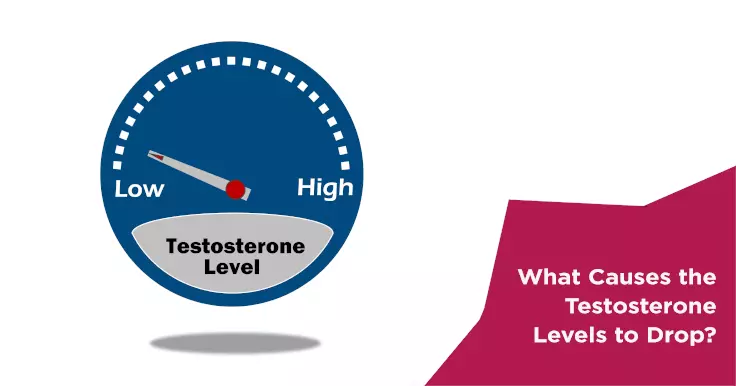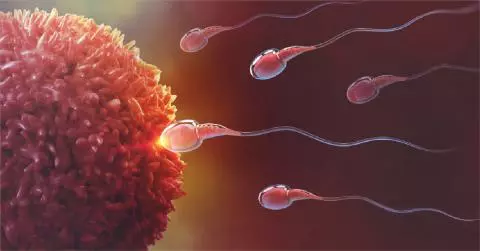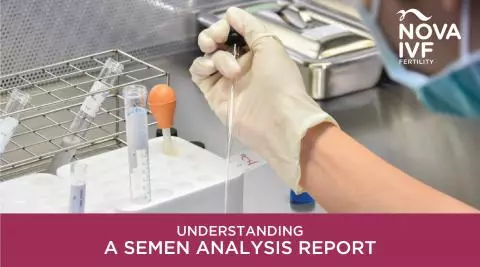Causes of Low Testosterone in Men

Testosterone is the hormone responsible for male features such as body hair, muscle bulk, physical strength etc. It is also the hormone behind a man’s libido. This hormone is produced in a man’s testes. Testosterone levels may vary from day to day based on a man’s age and his body’s needs. Normal testosterone levels range from 300 nanograms per decilitre to 800 nanograms per decilitre. Less than 300 ng per decilitre is considered low. There could be many reasons for this.
Reasons for Testosterone Level Drop
Age
As a man gets older his body starts making lesser and lesser testosterone. This is usually noticeable after the age of 30 years.
Delayed Onset of Puberty
Late puberty may affect the growth of the testicles and thus, in turn, affect testosterone production.
Damage to the Testicles
The testicles are responsible for the production of testosterone. Thus, any kind of damage to the testes may result in low testosterone. This includes damage due to an injury or as a result of alcoholism or mumps.
Hypothalamic Disease
This is a disorder that affects the hypothalamus. It may be caused by eating disorders, genetics, surgery, radiation etc. This may inhibit testosterone production and hormone secretion.
Pituitary Disease and Noncancerous Pituitary Tumour
The pituitary gland plays an important role in testosterone production by releasing a hormone that in turn stimulates the testes to produce testosterone. An infection of disease of the hypothalamus can keep it from releasing hormones and hence affect testosterone production.
Genetic Diseases
Men may inherit certain genetic conditions from their parents that cause low testosterone levels. This includes myotonic dystrophy, Klinefelter syndrome and Kallmann syndrome.
Chronic Diseases
Diseases like HIV, Diabetes, obesity and liver and kidney disease can also affect testosterone production.
Do You Have Low Testosterone – Diagnosis
A blood test can help check a man’s level of testosterone. Since hormone levels are usually highest in the morning, a sample of blood for this test should ideally be taken between 7 am and 10 am. More than one test may be required to get an accurate result.
The patient may also be advised to stop taking certain medications before the test as they could affect testosterone production. Thus, it is important for the doctor to know what medication you are currently taking before undergoing this test. This includes prescription medication and over the counter medication.
Can Low Testosterone Be Treated?
Treatment for low testosterone levels is usually advised only if it affects fertility or causes any other health issues. In such cases, gonadotrophin injections may be prescribed. These are hormone injections that stimulate the production of testosterone. It can also help improve sperm count.
Testosterone may also be implanted in the form of pellets under the skin in the buttocks. These pellets gradually release testosterone into the bloodstream over a period of 3-4 months. These forms of testosterone therapy have their pros and cons. Men with prostate cancer are usually not advised to undergo this form of treatment as it can accelerate the growth of the prostate gland.
 Infertility Counselling
Infertility Counselling Female Infertility Treatment
Female Infertility Treatment Andrology Treatment
Andrology Treatment Fertility Enhancing Surgeries - Female
Fertility Enhancing Surgeries - Female Fertility Enhancing Surgeries - Male
Fertility Enhancing Surgeries - Male Endoscopy Treatment
Endoscopy Treatment IUI Treatment
IUI Treatment IVF Treatment
IVF Treatment ICSI Treatment
ICSI Treatment Advanced IVF Solutions
Advanced IVF Solutions Embryology
Embryology Vitrification Egg, Embryo, Sperm Freezing
Vitrification Egg, Embryo, Sperm Freezing Preimplantation Genetic Testing (PGT)
Preimplantation Genetic Testing (PGT) Donation Program Embryo / Egg / Sperm
Donation Program Embryo / Egg / Sperm Self-cycleTM IVF
Self-cycleTM IVF

 Self-cycleTM IVF
Self-cycleTM IVF











